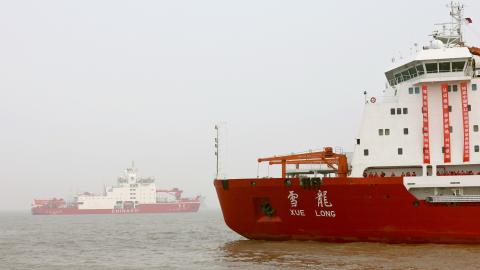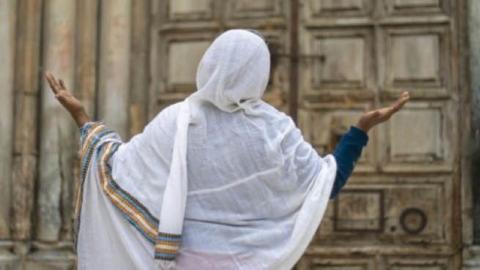On August 13, World Israel News reported that the United Arab Emirates and Israel have agreed to establish full diplomatic ties as part of a deal to halt Israel’s extension of sovereignty over Judea and Samaria. The announcement makes the UAE the first Gulf Arab state to do so and only the third Arab nation to have active diplomatic ties to Israel.”
The announcement was made by President Donald Trump. “Now that the ice has been broken I expect more Arab and Muslim countries will follow the United Arab Emirates.” So President Trump, who negotiated the agreement, predicted.
There was, of course, debate in Israel and beyond about whether the agreement had cast aside annexation of biblical Judea and Samaria for the sake of an elusive peace gesture. At the same time, there was celebration among young Israelis, embracing new hopes for harmony with the Arab world.
Despite the UAE flag emblazoned in lights across Tel Aviv’s city hall, heated discussions on the subject continue between American and Israeli, religious and secular, conservative and liberal Jews and their supporters.
Iran reveals two new missiles, one named after Soleimani
Meanwhile, conversations about the religious implications of the agreement have extended well beyond Jerusalem and Abu Dhabi. Could peace between the Jewish State and a Sunni Arab powerhouse portend increasing religious freedom across the Middle East?
For several years, the United Arab Emirates has been painting a self-portrait not only of a super-wealthy Arab state, but also as a haven of religious freedom. And since Pope Francis’ dramatic visit there in February 2019, much has been said to affirm that these efforts amount to more than a photo-op.
Deutche Welle (DW) described the Pope’s visit as an historic milestone, reporting “More than 130,000 worshipers flocked to the Zayed Sports City Stadium in the UAE capital, Abu Dhabi, on Tuesday to celebrate a Mass with Pope Francis… He is the first leader of the Catholic Church ever to set foot on the Arabian Peninsula, the birthplace of Islam.”
If peace between Jews, Muslims and Christians is possible in one small Arab country, why couldn’t it extend further? Reflecting on this possibility, prayerful optimists have lifted their eyes heavenward while world-weary cynics continue to shake their heads.
On the optimistic side, DW explained that at the start of his papal visit, Pope Francis met with Crown Prince Mohamed bin Zayed Al Nahyan and other UAE leaders at the presidential palace.
“He also signed a document promoting ‘human fraternity’ with Sheikh Ahmed el-Tayeb, the grand imam of Egypt’s Al-Azhar, the seat of Sunni Muslim learning. During an address to a gathering of interfaith leaders, he called for an end to wars in the Middle East, including in Yemen and Syria. All religious leaders had a ‘duty to reject every nuance of approval from the word war,’ he said.”
But, as less-than-upbeat observers will quickly note, religious freedom in the Middle East often ends where radical Islam begins, whether that dangerous version of ideology is rooted in Shiite or Sunni tradition. In fact, in its 2020 Country Report, the U.S. Commission on Religious Freedom (USCIRF) declared that Egypt, Iraq and Turkey were included on its “Special Watch List,” while Iran and Saudi Arabia continue to be “Countries of Particular Concern” (CPC).
Both had either permitted or committed egregious violations of religious freedom. Indeed, the violent nature of conflicts in the Middle East, including genocides of Christians, Yazidis and other minorities, tend to discourage even the most enthusiastic proponents of dialogue and reconciliation.
Still, efforts for peace – whether motivated by economic promise or intended to create a bulwark against Iranian and Turkish aggression – should not be disregarded. It is a region where churches are sometimes bombed or torched and surviving synagogues are broken relics of happier days — before the wholesale expulsion of entire Jewish communities.
Nonetheless, the UAE has begun a unique project intended to transform the marred image of Muslim, Jewish and Christian relations: a Multi-Faith Complex – including the first official synagogue in the country’s history.
“A church, mosque and synagogue will share a collective space for the first time, serving as a community for inter-religious dialogue and exchange, and nurturing the values of peaceful co-existence and acceptance among different beliefs, nationalities and cultures,” the committee overseeing construction of the complex said in a statement.
For years, Israel and the United Arab Emirates have been holding clandestine meetings. Now their newly revealed projects include both economic and defense opportunities to which both have contributed expertise and funding. Today, the inclusion of other Arab states in such endeavors is already under discussion, including Bahrain, Saudi Arabia and Sudan and more.
Sanguine regional conversations about peace and prosperity should never be silenced. Prayerful candles should always be lit by people of faith. Nevertheless, wary eyes keep their watch as Turkey’s President Tayyip Erdogan and Iran’s Supreme Leader Ali Khamenei rage and rant about the Israeli-Emirati agreement’s betrayal of Islamic empire-building.
And while Abu-Dhabi’s construction of the Multi-Faith Complex prepares for its 2022 opening, deadly gunfire shatters quiet nights in Iraq, Syria and Lebanon, while rockets and explosive balloons continue to darken the sunlit skies above Israel.
Read in World Israel News















